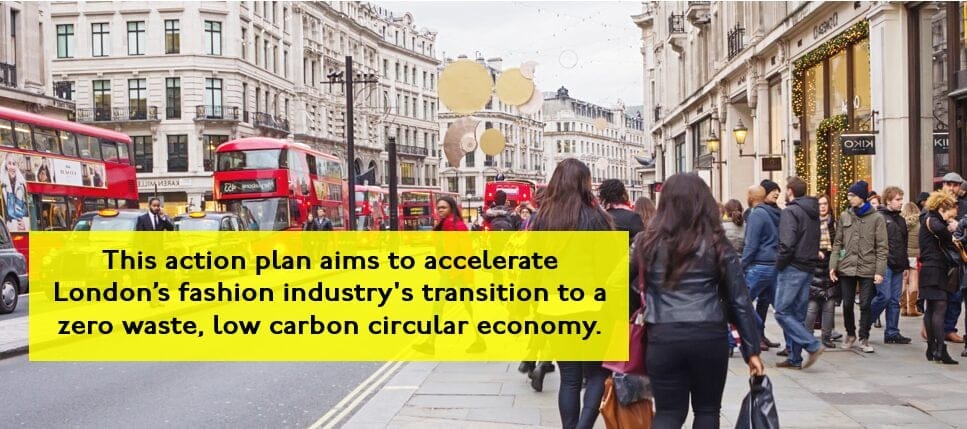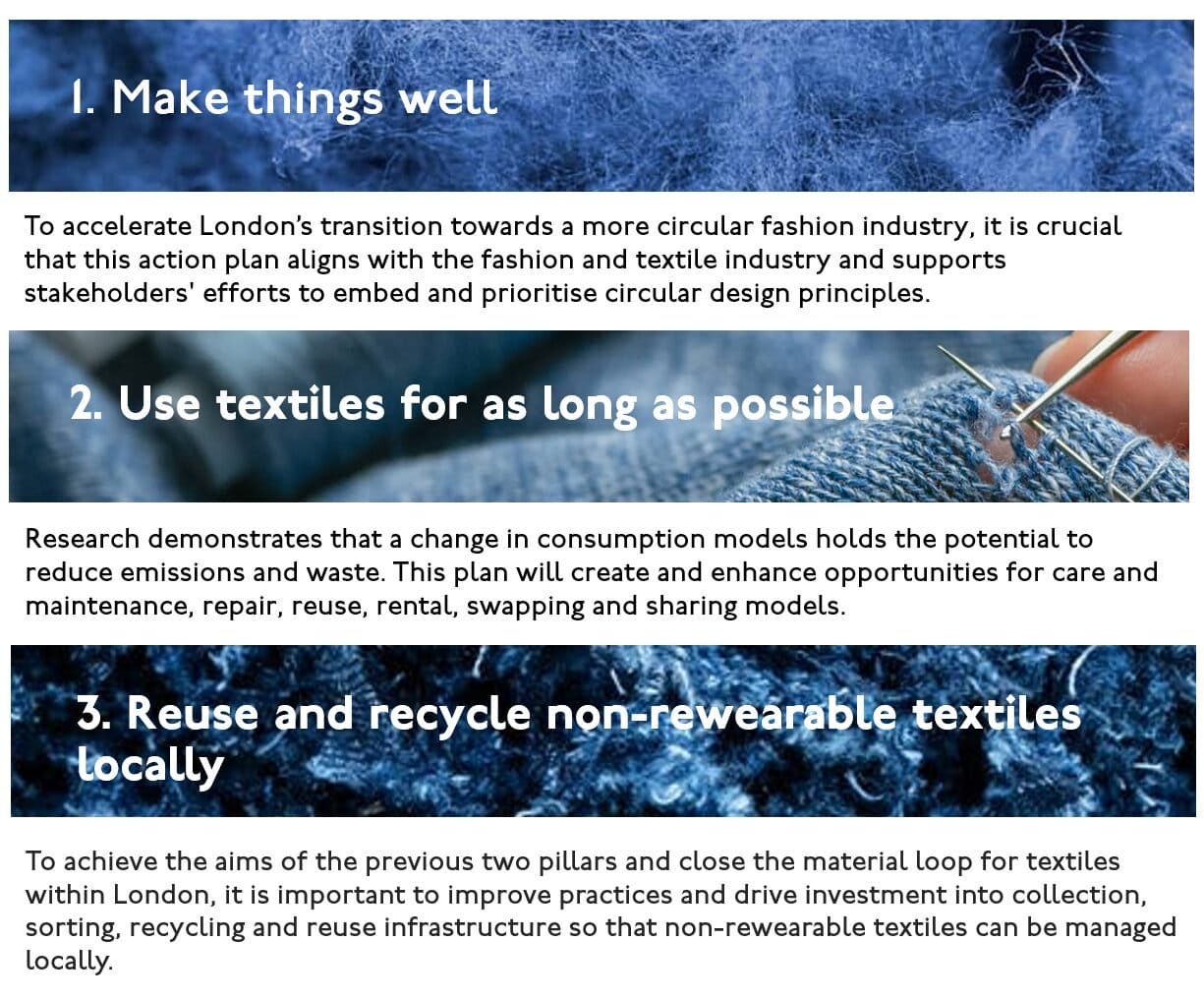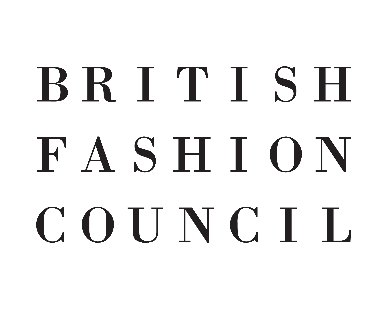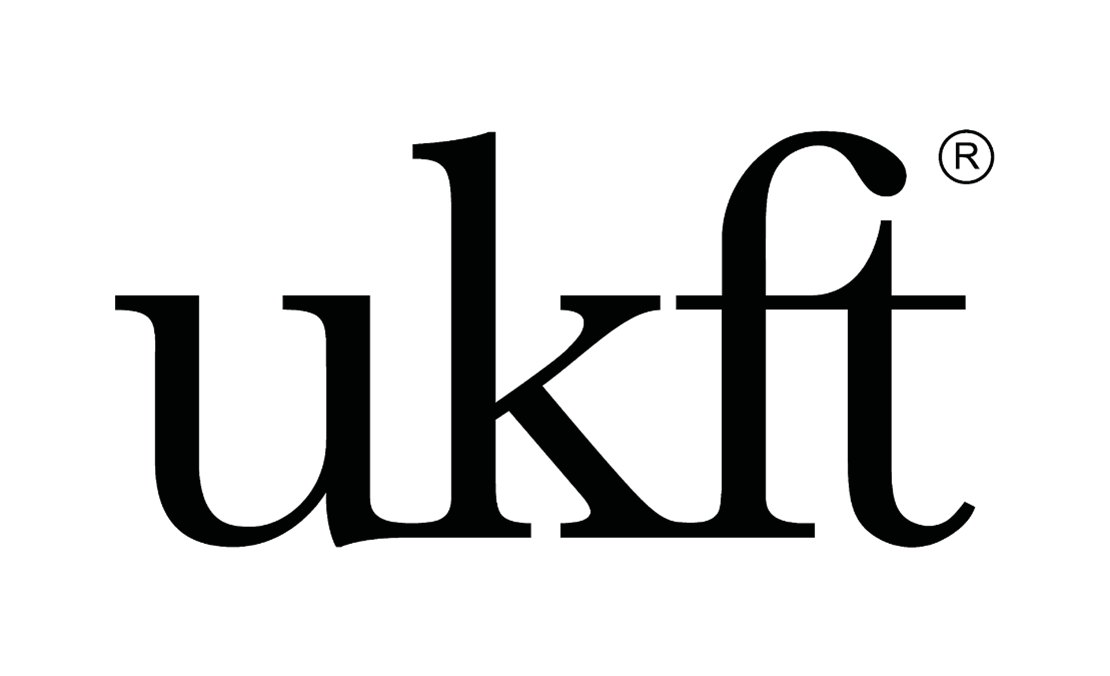
The London Textiles Action Plan sets out a programme of activities that will accelerate progress towards a zero waste, low carbon circular economy for fashion and textiles in London.
As one of the world’s most iconic trend-setting fashion capitals, London has the opportunity to be a global exemplar for circular fashion and textiles and deliver action to reduce the city’s textiles-related environmental footprint and support a just transition towards a zero-waste and low carbon fashion industry.
The vision

This action plan builds on the Mayor of London’s ambition to catalyse the transition to a zero waste and low carbon circular economy and London Councils’ commitment to tackle consumption emissions. It aims to nurture creativity and innovation and unlock opportunities to collaborate with national and local government, industry, non-governmental and community-based organisations across London’s textile supply chain.
Together, these actors hold the potential to reduce waste and minimise the environmental impacts that arise across the entire lifecycle of textiles. Through joint action, all Londoners can embrace sufficiency, love their clothes for longer through reuse, repair and sharing, and ensure that unwanted textiles find another use.
Three outcome pillars have been developed to deliver this vision:

Action plan activities
To achieve the action plan’s vision, London boroughs and partner organisations aim to support and deliver the following nine activities that help to accelerate London’s fashion and textiles industry towards a zero waste, low carbon circular economy.
| 1. Circular economy hubs for textiles |
| Explore opportunities for London’s boroughs to support the growth and development of local spaces that enable the recovery, remanufacture or reuse of textiles. |
| 2. Repair voucher scheme |
| Increase the uptake of repair by subsidising the cost of professional services. |
| 3. Educational programme for schools |
| Develop educational resources, establish reuse mechanisms within schools, change student behaviour through swap programmes, and distribute clothing to families in need. |
| 4. Small business support |
| Advice, connections and grants for London-based circular businesses that are driving textile innovation and using a variety of circular business models, from sharing, rental and reuse to upcycling and repair of existing garments. Examples include ReLondon’s ReWear grant programme. |
| 5. Textiles map/directory |
| Development of an online map that identifies local assets (such as textile banks, repairers, scrap shops and hubs) and highlights businesses that promote circular designs and/or business models. |
| 6. Segregated textile collections |
| Increase the volume of collected textiles and reduce waste by connecting local authorities and textile collectors/charities to enable segregated clothing collection services across all 33 London boroughs. |
| 7. Procurement framework for the public sector |
| Re-assess existing internal procurement policies around textile purchasing and potentially develop either voluntary guidance or a formal commitment related to the purchase of textiles. |
| 8. Pan-London campaign |
| Developing or amplifying opportunities to encourage the uptake of circular alternatives such as second-hand, rental, swapping and sharing – e.g. through ReLondon’s Love Not Landfill and Repair Week campaigns. |
| 9. Textile sorting and recycling infrastructure |
| Align with industry’s efforts to develop post-consumer sorting infrastructure facilitate London’s textile reuse and recycling, including supporting skill development related to sorting, collection and redistribution. |
Further information about these actions can be found in the London Textiles Action Plan.
About the plan
This plan was developed by the Greater London Authority, London Councils’ One World Living programme (textile leads from Richmond and Wandsworth and West London Waste Authority), ReLondon and the Ellen MacArthur Foundation in collaboration with London’s boroughs. It builds off a commitment made in 2023 following evidence published in the London’s fashion footprint report, an analysis of clothing material flows and associated consumption-based emissions.
Get involved
Collaboration is key to achieving the aims of this action plan. Efforts to continue and expand engagement with a wide range of relevant organisations across London will help inform effective actions and to foster collaboration.
We are therefore calling for partners to support the delivery of the London Textiles Action Plan. This will include local authorities, civil society and leading charities, funders, brands, retailers, academic and public sector institutions, and could involve:
- Volunteering your organisation to pilot new models, programmes, and circular fashion and textile initiatives across London.
- Providing financial support needed to scale the impact of the action plan.
- Providing connections with organisations, cities and businesses within the city, across the UK and internationally to create knowledge sharing and partnership opportunities.
- Helping spread the word and increase uptake through communications support.
- Helping build the evidence and make the case for a circular fashion and textiles sector.
Advisory committee members










